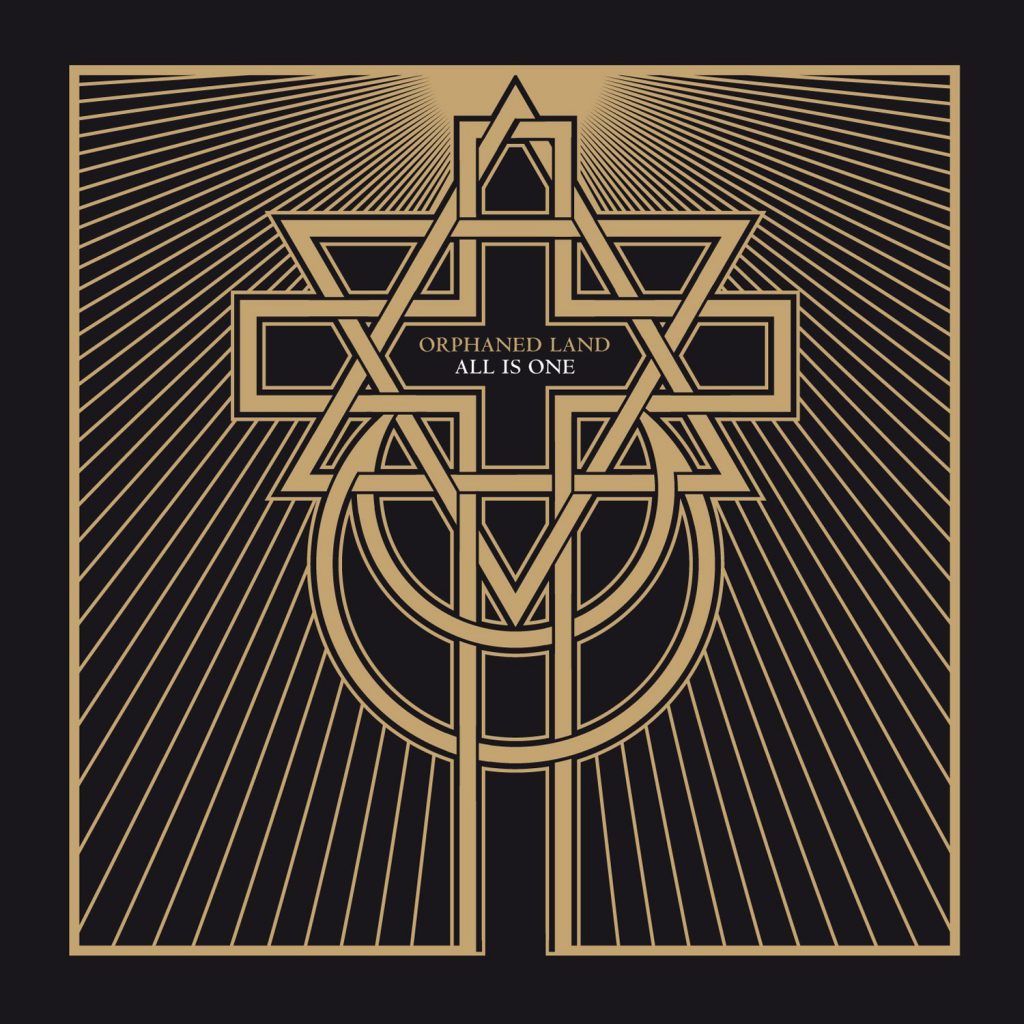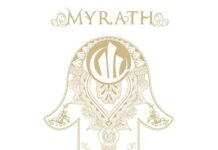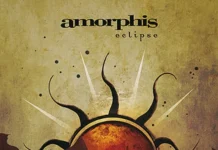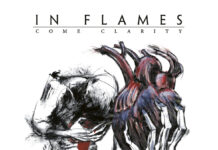ORPHANED LAND is one of the most influential bands in emergent genres coming from regions outside the standard in the global metal scene. From lyrics in the Hebrew and Arabic languages, traditional Turkish instruments, and biblical passages between guitar riffs, this band has it all in innovation. They eventually opened a space for what we call today oriental metal, and the metal fandom set their eyes and ears in The Middle East. Today, we look back on their 2013 release, “All is One,” for its anniversary!

Since their first album, “Sahara” (1994), ORPHANED LAND has captured listeners’ attention with a progressive metal vibe mixed with a Middle Eastern flavor in their long-lasting 8-minute songs. This initial formula worked, as their following three albums had a similar ambiance, but like any other artist, there is a moment to take risks and reinvent their essence… and that is what happened with “All is One” (2013). They opted for more brief pieces, enhancing the listener’s stamina in one song full of orchestral arrangements with growling voices and calming down in the next one with Kobi Farhi‘s gentle voice reciting peaceful messages between the lines. On top of that, while each of their previous works had a specific conceptual framework, “All is One” songs are independent of one another in lyrics and concepts. This recipe succeeded, and to this day, “All is One” is their most acclaimed album, projecting ORPHANED LAND as an internationally acclaimed Israeli act. “All is One” was their last album with the co-founding member Yossi Sassi (guitars and oriental instruments) and the first one with Chen Balbus (electric guitar), so we can also consider it as the end of an era for the band. The album cover has a serene aura with a juxtaposition of the three Abrahamic religions’ symbols—the moon, the cross, and the star—in a dark background surrounded by a golden outline and a rising sun. The image suggests that this work will be a pledge for brotherhood among religions, and in fact, that is ORPHANED LAND‘s lyrical essence. In a music genre with mostly dark lyrical topics, it comes as a surprise to bump into a band that changes the game, and “All is One” eloquently evokes ethereal images of peaceful coexistence among religions.
“All is One” starts with the homonymous song through a cümbüş rhythm [Turkish stringed instrument] and a chorus arrangement popping up powerfully with the electricity of the guitars. The song gets uplifted by Kobi‘s voice that speaks authoritative sentences such as, “Evil falls on each of us, there’s nothing new, who cares if you’re a Muslim or a Jew?” “All is One” sticks in you long after hearing it thanks to the mixture of traditional instruments and heavy echoes. After this bombastic beginning, “The Simple Man” takes over our ears with, again, a gentle start where traditional stringed instruments guide us to an enigmatic piece personifying the life and death of a prophet. Through verses that beg for peace on earth brought by a fortuneteller, and with a candid oriental flavor, “The Simple Man” personifies a living image of One Thousand and One Nights tales where mysticism prevails in a deserted landscape. Soon after it is over, “Brother” introduces a more chill atmosphere with a narration of Isaac and Ishmael, two prophet brothers in the Abrahamic religions. “Brother” starts gently with violins and is followed by lyrics about their separation at birth and how Isaac pledges forgiveness to Ishmael for becoming enemies. “Brother” is a story that reimagines what fraternity is among people of the same kin, something that can be applied among societies. If “Brother” was the pinnacle of the repertoire’s sweet side, “Let the Truce Be Known” is the opposite face of the album. While using a background with gunfire and explosion noise, we hear a repentance tale of soldiers reflecting on why no peace can be agreed between them. Turkish violins and heavy riffs string along with the catastrophic atmosphere on “Let the Truce Be Known.”
When moving forward, we will find pieces with such an ethereal Middle Eastern vibe that there is no way any other band than ORPHANED LAND was able to make it. “Through Fire and Water” is one of those. This work mixes two contrasting voices in opposite languages, Kobi as the male vocals in Hebrew, and the Arab-Israeli singer Mira Awad as the guest female vocals in Arabic. Alongside violins in the background and guitars turning up the volume to accentuate the battle between the voices, “Through Fire and Water” disappears slowly as if it were telling us to imagine our version of peace. A song of this kind is, indeed, necessary not only because it incorporates fresh languages in heavy metal but also because it sheds light on the possible peaceful coexistence among religions. Later on, “Fail” appears as a contrast to all the previous pieces with aggressive guitars and no traditional arrangements. In a spoken-word format, “Fail” runs rapidly to challenge the listener’s ability to grasp the content between the lines. This rapidness is consummated with a growling voice at the end that speaks for a ceasefire in today’s warfare worldwide.
After the rollercoaster of rhythms and emotions thus far, it is time for an interlude to cool down our stamina. “Freedom” takes pride in its name through a lively ensemble of different traditional stringed instruments that make the listener dance away to the guitar beats and percussion bangs. Similar to “Freedom,” the following piece “Shama’im” begins with a powerful orchestral ensemble introducing us to a candid melody completely interpreted in the Hebrew language. The vibe here is similar to “Through Fire and Water”; however, “Shama’im” does not go too much into contrasts in sounds and lyrical messages. This is indeed one of ORPHANED LAND‘s most elegant songs as it just lets the language flow slowly alongside the choral background. The latter raises the volume dramatically until it disappears, leaving us with the final powerful words, “For the sky’s already lit, whom to fire, whom to water, To a path forever more.” If “Shama’im” was a treat for our ears, “Ya Benaye” is completely the opposite (in a good sense). It introduces us to the Arabic language through a combination of traditional instruments with heavy guitars, in an otherworldly atmosphere reminiscent of a spiritual ritual.
The tracklist oversees its end, and the last two songs conclude the album with a magnificent orchestral touch. “Our Own Messiah” returns to the English language lyrics with intensity. Through rapid guitar notes, a background chorus, and male vocals in an operatic mode, the song feels like an anthem to spirituality in all its forms. “Our Own Messiah” is mostly inclined to symphonic metal with minor touches of ORPHANED LAND‘s very own oriental metal. Perhaps it might be the lyrical content, which touches upon Avinu Malkeinu—a sacred Jewish chant—or the end of the record almost closing in, but this song has the shape of a symphonic play, a religious experience, and a metal show at once. That is enough to describe such a majestic work of art. Although “Our Own Messiah” felt like the conclusion, “Children” concludes the album splendidly by using orchestral arrangements and a somber metal rhythm that, once reaching the most dramatic sound, fades away all of a sudden to leave Kobi’s voice standing alone asking why we live in a world of war and sorrows. As this last piece seems like a tragic end to the album, one that questions the injustices of our time, “Children” resonates with a search for justice for those whose faith has been suppressed.
With this album, ORPHANED LAND left a long-lasting trace in contemporary metal music to say out loud that there are many spaces in the world with evocative sounds, traditions, and languages that deserve our attention. Oriental metal is here to stay. “All is One,” ten years later, still encourages us to imagine a world where peace prevails and injustices come crashing down. It sounds like a utopia, but isn’t heavy metal all about imagining fraternity in music?
Written by Hector Sanchez
TRACKLIST
- All is One
- The Simple Man
- Brother
- Let the Truce Be Known
- Through Fire and Water
- Fail
- Freedom (Instrumental)
- Shama’im
- Ya Benaye
- Our Own Messiah
- Children
LINEUP
Kobi Farhi – Vocals
Yossi Sassi – Electric guitars, Acoustic guitars, Classic guitars, Bouzouki, Chumbush
Chen Balbus – Guitars
Uri Zelcha – Bass
Matan Shmuely – Drums
LABEL
Century Media Records





